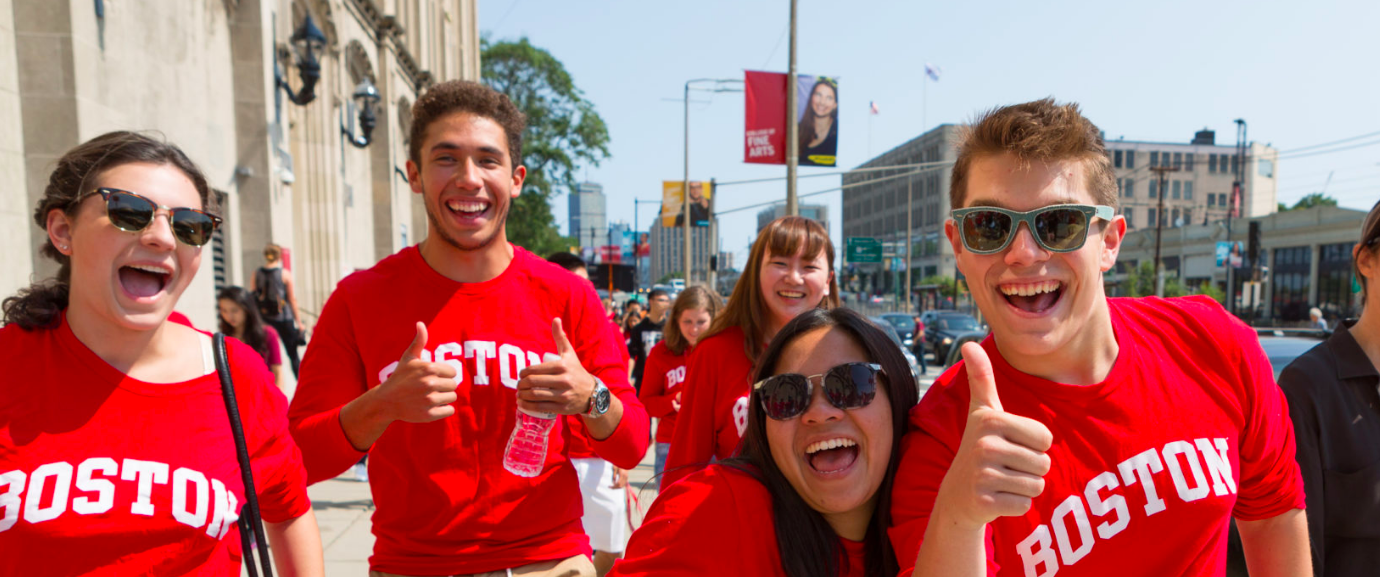To get into America’s top colleges, you need to demonstrate interest, which is a fancy way of saying, you need to flirt with colleges. Yet, when is just as important as how.
What’s a CEEB High School Code and Why is it Important?
When registering for standardized tests and filling out college and university applications be ready to provide your high school’s CEEB code, which helps your counselor and admissions officers.
The new Common Application is here. Are you ready to complete it?
 Hey Class of 2020!
Hey Class of 2020!
In a scene from Steve Martin’s 1979 movie, The Jerk, his nebbish-y character Navin R. Johnson runs pell mell down the street upon seeing his name in print for the first time (in the phonebook), declaring to anyone within earshot:
“The New Phonebook is Here! THE NEW PHONEBOOK IS HERE!!!!”
Yeah, I’m a bit of a nebbish myself when it comes to this sort of stuff…every August 1 a brand spanking new Common Application comes out, and that means that you can – and should – access, register for free, and – wonder of wonders – begin filling out what will become (for many if not most of your colleges) your bona fide, actual college application!!!
So join in my excitement and go to www.commonapp.org and click on the “Apply Now” link, register, follow directions and get your college applications started!!
Note that you need to include at least one number, letters (one capital, one lower case) and a symbol (!@#$%^&*) in your ten to sixteen character password. Make sure you write down your password (and don’t be too cute – you don’t want to lose it!).
After you’re registered go to the “College Search” link and type in the name – or partial name – of a college from your top 10 list and hit “search”. You don’t need to fill in every blank – takes too long – just a partial name and you’ll be able to locate your school).
Click the box next to your college and then click “Add.”
Do this for every school on your list (don’t be exclusive at this stage – you can add and remove schools freely over the next five months) and then go to your ‘Dashboard’ and voila, there’s your college list!
Now begin filling out the common application. The sections are: “Profile” “Family” “Education” “Testing” “Activities” “Writing”
So there you have your next assignment campers: register and then fill out the “Profile,” “Family,” “Education,” “Testing,” and “Activities” sections of the Common Application! This is exciting!!! You’re really doing it!!!!!!
***
This is also a great time to be writing your first and your second (extra…additional…icing on the cake…one for the Gipper) essays. You also should have (or be constructing) an academic/activity resume, which you’ll find multiple uses for, which I’ll be sure to tell you about if you ask me.
If any of the above has you confused, if you’re still struggling to get going on your essays, resume, list of colleges, or if you just want to qvell with me about my Yankee’s amazing season (forget the killer B’s, we’ve got Mike Tauchman and DL LaMahieu!!!!), give me a call or email and we’ll chat. This time of year I’m about helping students organize their ‘to do’ list for the remainder of the summer and the fall.
And remember to relax, it’s still summer vacation (for some of you) fer cryin’ out loud! Enjoy yourself!
From your erudite escort, your humorous homeboy, your perceptive preceptor, your confident confidante…
Gary, the College Guy
P.S. As always, feel free to forward this rant to other rising seniors and their parents, or send me names/email addresses of folks whom you think would benefit from reading my rants. Or you can send them to my web page, which has all my rants for anyone to see. IMHO there’s not enough good, coherent information out there, and you’ve just waded through about the best there is!
“If things are broken at elite universities, things are broken, period.”

Yale University, New Haven, Connecticut
If you can read only one thing this year that encapsulates the current state of life at far too many American colleges and universities, and thus, life in America, read this intense and amazing essay by writer and Yale graduate Natalia Dashan. This essay is a window into the life those chasing admission into selective colleges and universities can expect – whether they realize it or not.
More: “The Real Problem At Yale Is Not Free Speech” via Palladium Magazine
Boston University to meet 100% of student need
 Boston University’s Associate Vice President for Enrollment & Dean of Admissions, Kelly A. Walter, has announced that BU has a new, expanded financial assistance program, affordableBU, that will meet 100% demonstrated need of any admitted first-year student who is also a U.S. Citizen or Permanent Resident.
Boston University’s Associate Vice President for Enrollment & Dean of Admissions, Kelly A. Walter, has announced that BU has a new, expanded financial assistance program, affordableBU, that will meet 100% demonstrated need of any admitted first-year student who is also a U.S. Citizen or Permanent Resident.
“We understand that now, more than ever, students and families expect a return on their investment when choosing where to apply to college. BU pledges to deliver that…” continued Walter. BU applicants’ financial need is determined based on both the FAFSA and CSS Profile™. Once BU has determined what a family’s expected contribution is, the university subtract that from the full cost of attendance. The difference, what BU refers to as “calculated need,” will be made up by financial aid.
Many selective colleges and universities meet 100% of demonstrated student need for domestic students (BU is now in this group); however, others don’t. Only a rarified few do for international students as well.
If you are interested in BU, be sure to check out its deadlines for when financial assistance applications are due, for the coming year.
Penn reveals new supplemental essay questions, other admissions changes

Penn’s campus in Philadelphia, Pennsylvania
University of Pennsylvania announced today that its supplemental essay question in search of a 650-word response by applicants is no more. Students applying during the 2019-2020 admissions cycle for Fall 2020 admission will be asked two new questions instead:
- How did you discover your intellectual and academic interests, and how will you explore them at the University of Pennsylvania? Please respond considering the specific undergraduate school you have selected. (300-450 words)
- At Penn, learning and growth happen outside of the classroom, too. How will you explore the community at Penn? Consider how this community will help shape your perspective and identity, and how your identity and perspective will help shape this community. (150-200 words)
Students are still able to write up to a grand total of 650 words in their responses to these questions; yet, with the changes, applicants will now have the challenge and opportunity to deliver two distinct messages in response to two distinct essay prompts.
Also announced today is a new policy that would have kept both U.S. President Donald Trump and his daughter Ivanka Trump (who both transferred to Penn’s Wharton School of Business as juniors) from ever attending or graduating from Wharton.
“From cycle year 2019-2020 forward, Wharton and Engineering will no longer accept external junior transfers. The College and Nursing will continue to accept junior transfers…We have made this change in consultation with our academic partners across campus. The curricular pre-requisites for transferring into Wharton or Engineering as a junior are both specific and extensive. As we reviewed Wharton and Engineering transfer applicants, we consistently saw that most applicants were unable to take the coursework necessary for a seamless transition into these schools. We hope this change will help applicants focus on the schools and programs that best align with their interests and preparation, and that allow them to successfully transition to our campus.” wrote Eric Furda, who currently holds the title of Dean of Admissions at Penn.
Ironically, earlier this month this site pondered how Ivanka Trump got into Penn back in 2002 and whether or not she would get in again today. It’s clearly a sore point with the powers that be at Penn these days that the current president of the U.S. and one of his top assistants both graduated from Penn. Whether or not this Penn admissions policy change has anything to do with the university’s current “resistance” to the leader of the free world is purely a matter of speculation.
Additional interesting tidbits shared by Furda this summer include:
-Penn will allow applicants to self-report test scores – as long as they are not athletes or international students. This means that certain students will simply be trusted to honestly report their highest scores on their applications and only send in official corroboration of their scores if they ultimately get into and deposit at Penn later in the admissions cycle.
– Penn is passive-agressively encouraging its IB applicants to take Math Analysis HL instead of other new math offerings rolled out recently by the IBDP.
– Penn will offer both regional and virtual information sessions during the year ahead and all of these will be listed here.
Remembering Tom Weede, and Calling on the Next Tom Weedes
I could tell this was not going to be a typical meeting with a college representative. He walked into my office with absolutely no hurry, as if this was all he had to do all day, and talked about his school from the heart, not from a memory-committed checklist of things someone else told him to say. When I asked questions, he left a space between when I stopped talking, and when he started his answer, never once referring me to the school’s website, or the college catalog. This was clearly a guy who knew his school as well as he knew his middle name.

It was also notable that he didn’t talk about his school in some theoretical abstract. We do that a lot in college admissions, where we talk about a college in the third person, like it’s some kind of god. He mostly talked about the students at his school, what they were doing, what they liked about being there. He knew that’s what makes the college experience work for a student—who you go to school with. He wasn’t going to waste my time reciting scores and rankings, because Rugg’s could tell me about scores, and rankings were, well, pretty pointless. If you have time to talk with someone face-to-face, the conversation should be a giving of self, not of data, and that meant talking about things that mattered. What matters most in college is the students.
After he said everything he thought I should know, he got up and gave me his card. As I recall, he said something about how he’d like to hear from me, but the university had made it kind of hard to get hold of him, with a student aide and a secretary standing between him and every incoming call, but he urged me to persist. After he’d left, I read his card, and realized I’d just spent forty-five minutes talking to a Director of Admissions who had made a cold call to my high school.
That was my introduction to Tom Weede, who passed on earlier this month, leaving this world and our profession all the poorer. The outpouring of loss has come from all circles of our field, and it all contains one common message; Tom was the rare person who not only felt you mattered; he made sure you knew you mattered. He trusted you with his opinion, and trusted that you would step up and let him know how you felt in turn, even if you saw things differently. His advocacy in the profession was focused on students, and when he engaged you in conversation, you felt, as George Bailey once said, that he knew you all the way to your back collar button.
Tom’s come to mind quite a bit this summer, and not just because of his passing. I’ve been besieged by a number of students and parents flooding my office with requests to make college plans, and they’re all ninth and tenth graders. One father called and insisted he had to meet with me right away, since his son was a junior, and had no college plans at all. The student’s name wasn’t familiar to me, so I looked him up. Turns out he was a sophomore, but since his father called the day after school was over, calling his son a junior made things sound more important, I guess.
That’s the kind of month it’s been. One parent wants to meet to talk about “college strategy,” another one is convinced his ninth grader’s chances at graduate school are already shot because the student has no plans for this summer. It’s easy enough to get caught up in the mania the media is peddling as college readiness, but it’s never hit the ninth and tenth graders like this before. Worse, it seems to be hitting their parents, and too many of them are succumbing to the herd mentality of college angst, abandoning their post as sentinels of their children’s youth.
If there’s any remedy to this, I’d like to think it’s the calm, listening voice of the Tom Weedes that are still with us. Tom did most of his preaching to admissions officers, and none of us were smart enough to ever ask him if he’d thought about saying this to kids and families. Since similar voices are doing the same thing, it’s time to ask them to broaden their scope, before SAT flash cards become the in gift for bar mitzvahs.
Voices like Ken Anselment, Heath Einstein, and Tamara Siler do a very nice job of reminding colleagues that that the college selection process is all about the kids. What’s needed now is for them to share their insights with a larger audience, giving kids permission to be kids. It would be a great way to honor Tom’s memory. Better still, it would be the right thing to do for our world.
Denison’s Overall Acceptance Rate Drops to 29%

Beautiful Granville, Ohio, home to Denison University
Alison Slater, Senior Assistant Director of Admission at Denison University in Granville, Ohio, about a half hour outside of Columbus, is shedding light on the first-year class that Denison will be welcoming to campus in Fall 2019.
Denison experienced “another record number of applications this year,” which resulted in an all-time low admission rate of 29 percent, according to Slater. Particularly notable is the fact that Denison will be meeting full demonstrated financial need for all members of its Class of 2023 – including admitted international students.
Slater added that Denison’s “Class of 2023 is extremely diverse and enhances a student body that is now 18% first-generation, 22% domestic multicultural, and 14% international. Our student body represents all 50 U.S. states and 56 countries, and the incoming class boasts middle 50% test score ranges of 27-31 (ACT) and 1200-1410 (SAT).”
Meanwhile, on Denison’s campus, the brand-new, 108,000-square-foot Michael D. Eisner (former Disney CEO) Center for the Performing Arts is now open. Denison’s dance, music, and theatre departments moved into their new home recently and look forward to putting the center’s new technology to good use.
While Denison’s name and location may not be as well known as its peer institutions further north and east, it’s certainly worth a visit for students interested in a strong liberal arts education. Clearly, an increasing number of students are getting this message.
How did Ivanka Trump get into Wharton?
Recently, Tucker Carlson of Fox News asked on his evening program, “How did (CNN host and child of a former Democrat Governor) Chris Cuomo get into Yale?”
The answer to this question is important for all Americans to know for the reasons Tucker Carlson explains in his monologue.
Yet, just as important, if not more important, would be for Americans to get answers to the following two related questions:
- How did Ivanka Trump (who is obviously the most powerful woman in America right now by virtue of her personal and professional proximity to President Trump) get into Penn’s Wharton School of Business in 2002 – as a transfer student no less?
- Would Ivanka still have gotten into Wharton with the same qualifications if she had submitted her transfer application after her father made his famous escalator speech announcing his run for president in 2015?
As thousands of rising high school seniors around the world embark on completing their college applications for “selective” American colleges over the weeks ahead, the answers to the above two questions would be clarifying and important for these young people to know.
Update: The powers-that-be at Penn changed their admissions policy just a couple of weeks after this post was published. The change, had it been implemented in years/decades prior, would have meant that Donald Trump and Ivanka Trump both would have been denied admission to Penn. Learn more here.

Ivanka Trump and family pose between Locust Walk and Jon M. Huntsman Hall on Penn’s campus in May 2004
When should I start working with my college counselor?
Many high schools don’t provide proactive college counseling to students until the end of eleventh grade. That’s not going to work for you!
Don’t wait until your school gets around to it. Find out when to assertively approach your college counselor by watching this Thorwback Thursday (TBT) classic.
- « Previous Page
- 1
- …
- 30
- 31
- 32
- 33
- 34
- …
- 47
- Next Page »